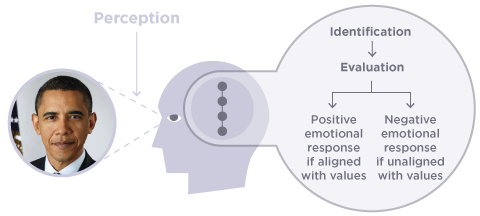Which has primacy between emotion and reason? What is reason? Reason is the faculty that organizes and integrates facts. What are facts? Facts are propositions that correspond with reality. How do we obtain facts? Through the senses. Therefore reason is the ability to comprehend reality directly through the senses.
What is emotion? An emotion is a response to an object (such as a person, place, or thing) or a proposition as evaluated by the perceiver of the object/proposition. How are emotions created? First, the perceiver, perceives and identifies an object or proposition, and then, he/she evaluates the object/proposition and concludes that the object is good or bad according to his/her values.
Therefore emotion is not a faculty of comprehending reality. Emotions cannot tell us anything about reality. Emotions only reflect what we think—implicitly or explicitly—about reality. If our ideas are true and aligned with our emotions, then emotions can be said to indirectly give us feedback about reality.
Example: Some people have a positive response to Barack Obama, and some people have a negative response toward Obama. A child who has never heard of Obama will have no emotional response to him. The difference in responses is due to different ideas and values in the perceiver's minds. The response itself does not give us any direct knowledge of President Obama in reality. It only reflects our cognitive evaluations of him.
Concepts by themselves may or may not be integrated through the faculty of reason. Concepts and values may be unidentified (subconscious). One can hold an identified, integrated concept and an unidentified inconsistent concept at the same time. Therefore, people can accept contradictions without knowing it.
We often identify "mind" with the process of reason and "heart" with the process of emotion. Conflicts between the mind and heart are conflicts between identified concepts and unidentified concepts that cause automatic emotional responses. Therefore conflicts between the heart and mind are ultimately conflicts between thoughts in mind. Such conflicts cannot be resolved by ignoring reason, they are only resolved by using reason to identify subconscious thoughts and integrating them with concepts as derived from reality.
Therefore, reason (the mind) ultimately has primacy over emotion (the heart).


